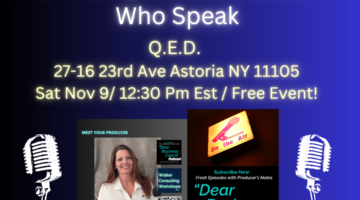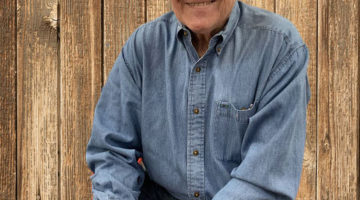At the press conference for Encounter Point, a peace movement documentary coming to you from the people at Just Vision and the Bereaved Families Forum, someone listening might actually start to believe that Jews and Arabs would one day live side by side in mutual respect and harmony. That is if prior to the conference that person never read a book or newspaper or watched CNN or saw the countless films produced that negate the message of Encounter Point. Although the filmmakers spoke to the media as if their documentary charting the lives of individuals on both sides who suffered devastating losses but then chose, through Just Vision, to meet each other, to heal with each other, and then to, as Robi Damelin (mother of a murdered child) said, “forgive but not forget.”
While I have no doubt that everyone at the Encounter Point dais honestly and sincerely perceive what they call the peace movement on the ground, when asked about real issues like a Hamas lead government and recent bombings, they quickly and strategically shut it down by saying “we are not here to talk politics.” Well, fine, let’s talk about rampant religious fanaticism then, or 1967 borders, or the right for refugees to return, or Jerusalem as a divided capital, or the score of other issues that will likely complicate Encounter Point’s goals.
My purpose here is not to deride their cause or deter their attempt, but as director Ronit Avni told us correctly, in the media, idealism is associated with naiveté – and there is a reason for that. While the cast and creators of this film are attempting to heal the world while healing themselves (and getting their work noticed), they can’t take their show on the road without being ready to confront the issues listed above. For those of us who want to see all their sentiments come to fruition, letting our guards down and believing them only to be jarred by the reality, will just require another wall to be painfully constructed within.
What was special was for the first time seeing something that I could certainly contemplate but had never witnessed – a room with reasonable Jews and reasonable Palestinians together discussing what surely they both want – good, safe, healthy, prosperous lives.
Ali Abu Awwad, whose brother was killed by the IDF, and Sami Al Jundi, supervisor for the organization Seeds of Peace, were eloquent and heartfelt in their description of the misery preeminent and their belief that the film could change the world. But it really is just too much for me to swallow. Too difficult a task for the sweet, good natured dreamer to stop what is out there. They get all the credit due for every handshake and hug between past enemies, but the proposition that these embraces will inevitably lead to a massive political/social shift is, pardon my media bias, naïve. I would much rather have heard the group say we change one life at a time and each one is a miracle and an end in and of itself, rather than to have to look into their eager faces as they spout clichés. Wonderful, beautiful clichés about understanding and listening and quitting the cycle of stubbornness and entitlement and fundamentalist thinking. Clichés that I might believe in and support if I wasn’t so sure they were based in pure fantasy.
————–
send comments to movies that bang editor Jordan Hiller directly at jtrick1@aol.com









